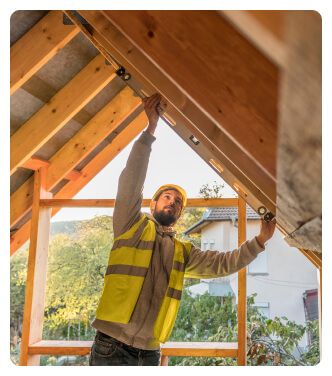ELECTRICAL SERVICES

ELECTRICAL SERVICES


Our Service Process
Site Visit
This includes the installation, maintenance, and repair of HVAC systems.
Quot & Consultation
This includes the installation, maintenance, and repair of plumbing systems.
Deliver Job
This includes the installation, maintenance, and repair of electrical systems.
Here's a brief explanation of key components of electrical services:
Electrical Design and Planning:
Electrical engineers create plans for the electrical systems in a facility, considering factors like power distribution, wiring, lighting, and safety codes.
They calculate load requirements to ensure the electrical system can meet the demands of the facility.
Power Distribution:
Designing and implementing a safe and efficient power distribution system is essential.
This includes the installation of transformers, distribution panels, and circuits to distribute electricity to various parts of a facility.
Emergency Power Systems:
Design and installation of backup power systems like generators and uninterruptible power supplies (UPS) to ensure continuity of operations during power outages.
Safety and Compliance:
Ensuring that electrical systems comply with safety regulations and codes.
Performing electrical safety audits and making necessary upgrades to maintain compliance.
Electrical Automation and Control:
Installing automation systems to control and monitor electrical equipment remotely.
Integrating building management systems for enhanced control and energy management.
Renewable Energy Integration:
Incorporating renewable energy sources like solar panels or wind turbines into the electrical system to reduce reliance on traditional power sources and lower carbon emissions.
Security Systems:
Integration of electrical components in security systems, such as access control, surveillance, and alarm systems.
Electrical Installation:
Electricians and electrical contractors install the wiring, switches, outlets, circuit breakers, panels, and other components required for the electrical system.
This includes both the primary electrical infrastructure and secondary systems like lighting and security.
Lighting:
Electrical services often involve the design and installation of lighting systems for indoor and outdoor spaces.
This can include energy-efficient lighting solutions and automation for better control and energy savings.
Electrical Maintenance and Repairs:
Regular maintenance and inspections to ensure electrical systems remain safe and efficient.
Troubleshooting and repairs to address electrical faults or issues.
Energy Efficiency:
Implementing energy-efficient electrical solutions to reduce energy consumption and lower operating costs.
This may include LED lighting, energy-efficient appliances, and smart controls.
Electrical Testing and Inspections:
Conducting electrical tests, such as voltage, current, and resistance measurements, to ensure system integrity.
Regular inspections to identify and address potential hazards or maintenance needs.
Data and Communication Wiring:
Installation of data and communication cabling for network connectivity, phone systems, and other communication infrastructure.
Coolman Certified by Suruhanjaya Tenaga (ST)
Suruhanjaya Tenaga, also known as the Energy Commission of Malaysia, is responsible for regulating the energy sector in Malaysia. To become certified by Suruhanjaya Tenaga, a company typically needs to meet certain requirements and undergo a certification process. The specific certification requirements can vary depending on the type of energy-related activities the company is engaged in. Here are some common types of certifications and the types of companies that may seek them:
Electrical Contractors Certification: Electrical contractors involved in electrical installation, maintenance, and related services may seek certification from Suruhanjaya Tenaga. This certification ensures that they comply with safety and regulatory standards when working on electrical systems.
Electrical Equipment Supplier Certification: Companies that supply electrical equipment, such as transformers, switchgear, or other electrical components, may seek certification to ensure that their products meet the necessary safety and performance standards.
Renewable Energy Service Providers: Companies involved in the renewable energy sector, such as solar panel installers or wind energy developers, may require certification to operate in compliance with renewable energy regulations and standards set by Suruhanjaya Tenaga.
Electricity Generation and Supply: Companies engaged in electricity generation and supply, including independent power producers (IPPs) and utility companies, often require licenses and certifications from Suruhanjaya Tenaga to operate legally and ensure grid reliability.
Energy Auditors and Consultants: Energy audit and consulting firms may seek certification to provide energy efficiency and auditing services in accordance with Suruhanjaya Tenaga’s guidelines.
Gas Supply and Distribution: Companies involved in the distribution and supply of natural gas or liquefied petroleum gas (LPG) may require certification to ensure the safety and reliability of gas supply networks.
Safety Certification: Some companies involved in energy-related activities may need safety certifications to demonstrate their commitment to safety practices, especially in high-risk areas like oil and gas exploration or petrochemical industries.
To obtain certification from Suruhanjaya Tenaga, companies typically need to submit an application, meet specific qualifications, demonstrate compliance with safety and technical standards, and undergo inspections and audits. The certification process aims to ensure that companies operating in the energy sector adhere to regulatory requirements, maintain safety standards, and contribute to the reliability and sustainability of the Malaysian energy industry.
Please note that the specific certification requirements and processes may change over time, so it’s important for companies to refer to Suruhanjaya Tenaga’s official website or contact them directly for the most up-to-date information and guidance on obtaining certification.

















